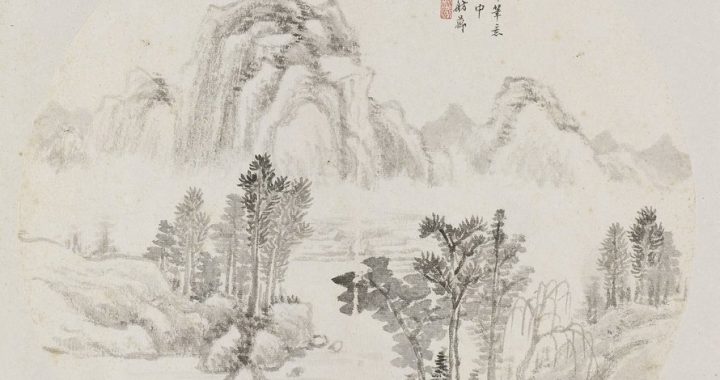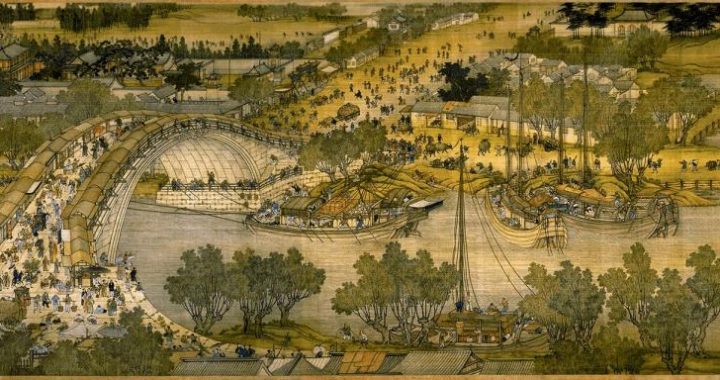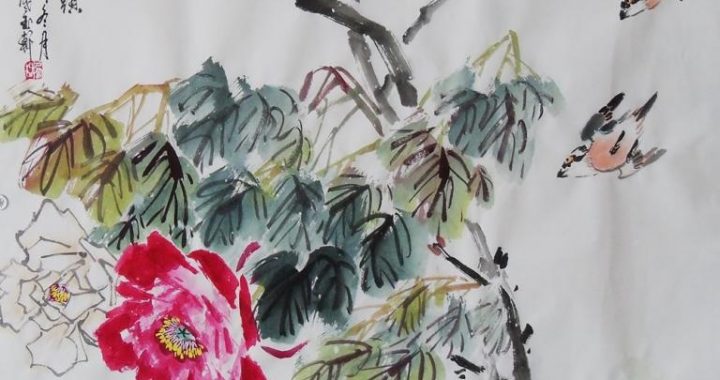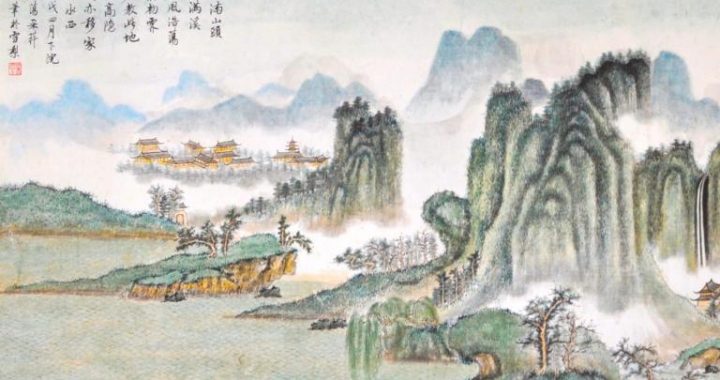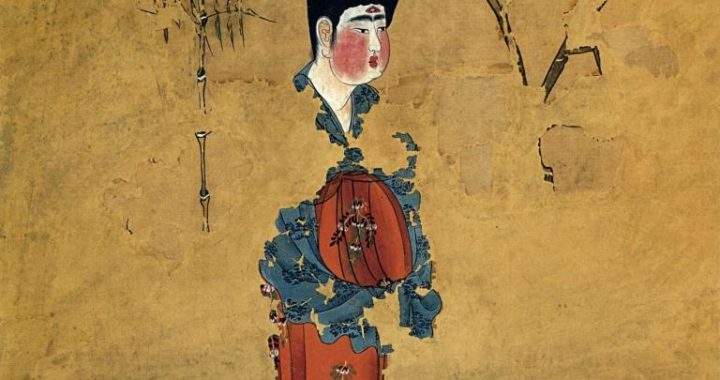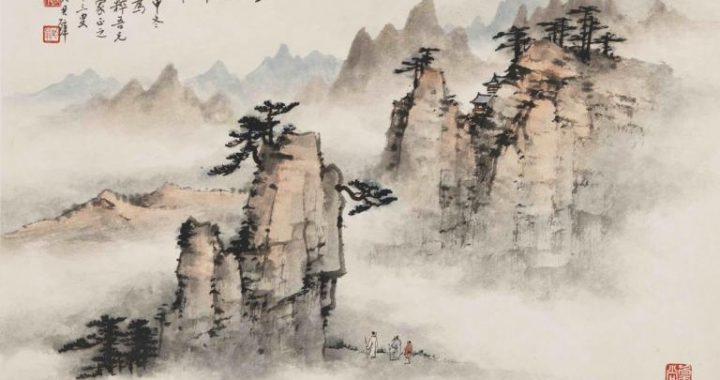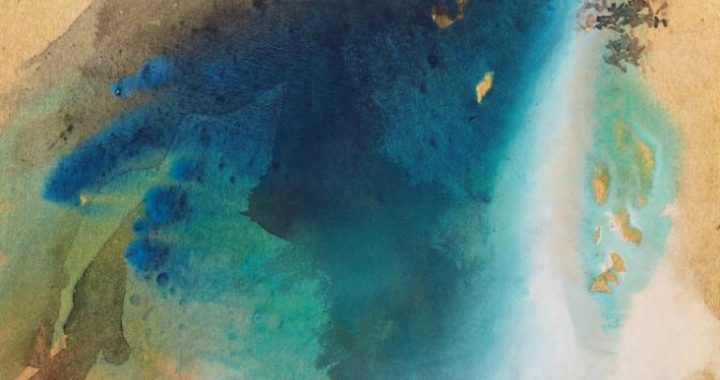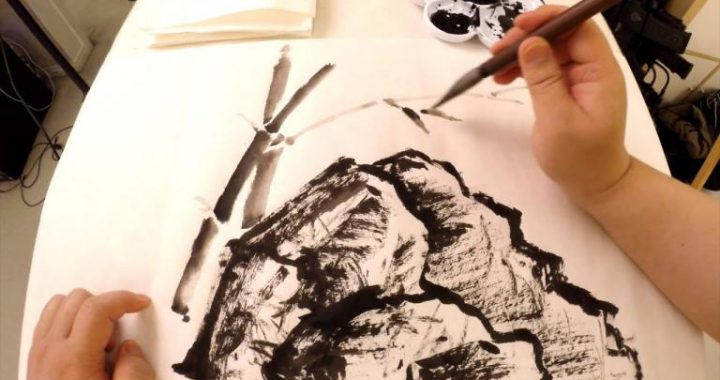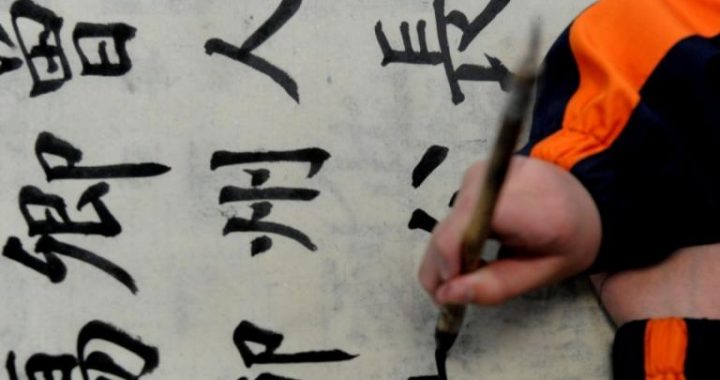Performers of Traditional Opera
7 min read1)A miserable life
Performers of traditional opera were first called”you”or jesters. The history of you people in China could be dated back to the Xia dynasty. Not excellent in performing, you people in the early years amused their masters by acting or speaking in a funny way or by displaying their physical defects. Later, they began to imitatea secular situation or someone and thus obtained some qualities of an actor. It wasnot until after the Spring-Autumn and Warring States period that you people became capable of acting out a story through singing and dancing. Appearance of the commercial theatres in the Song and Yuan dynasties finally ushered in the era of professional performers, and their number increased dramatically thanks to the boom of traditional opera in both urban and rural areas since the Ming dynasty. From then on, operatic performance became a special trade in ancient China.
In ancient Chinese literature, the term “youling”is often used in a derogatory sense. They were people employed in humble jobs. In the eyes of literati, youling was inferior in status, only capable of amusing people and trying to find favor withsomebody but incompetent for anything decent. The stories of three youlin were first recorded in Historical Records by Sima qian. All the stories just tell how they managed to admonish with euphemism but do not have any records of their performance.
This recording style was inherited by historical books of later dynasties. As a result, it’s impossible for people to get an insight into youling’s performing situation by merely reading historical books.

In the Song dynasty, records of professional performers could be found in the notes of literati; however, names were listed without any trace of their stories. In the Yuan dynasty, Xia Tingzhi,a descendant of a noble family, wrote a biographic book The Story of a Blue Mansion, more than one hundred zaju actresses have been included in it, indicating relationship between scholars and operatic performers atthat time used to be close. But a book of such a kind was rare. In the Ming dynasty, Zhu Quan, governor of the outlying prefecture, called operatic performers as “changfu”and put them into the category of “literati and playwright”in his book.
The fact that performers were given only stage names rather than real names revealed that they at the time were inferior in status. Literati’s notes and novels from the Ming and Qing dynasties left us more records of the activities and stories of the then notable actors. The reign of Emperor Qianlong witnessed three books about performers of traditional opera, including A Record of Dan Actors,A New Chant toDispel Cold, and Notes of Yangzhou Pleasure-boat, these books provided a detailed description of their humble social status. Instead of appreciating performance, som disgraced scholars were interested only in their feminine charms and postures. Such abnormal relations between scholars and performers were described in a novel written in the Qing dynasty, Love between the Nobles and Dan Performers.
It’s a matter of fact that in ancient China operatic performers were institutionally biased. In the Yuan dynasty, rules provided that changyou (anothername for you people) were the same as transgressors and not allowed to attend the imperial civil examination. An imperial decree was even released, prohibiting operatic performers to marry anyone beyond the trade. Discrimination was carried forward in the Ming and Qing dynasties in that operatic performers were not treated equally as commoners. For example, in the Qing dynasty a county magistrate was dismissed and banished due to other officials’ impeachment, accusing the magistrate used to be a dan and therefore was too mean to be a magistrate. At that time evenregulations were adopted on operatic performers’ clothes. Yuan government required them to wear a “role hat”while Ming government asked all male performers to wear agreen scarf, which had customarily been worn by people from the lowest-status since ancient times. Later, the term “green scarf”was used as abusive language. Even worse, they were often taunted by others at will, such instances are numerous in Chinese novels.
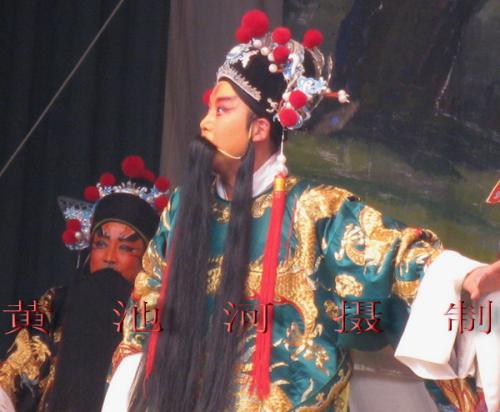
Since 1949 the situation has been totally changed. The performers today are respected as artists and loved deeply by ordinary people.
2) Illustrious Operatic Artists
In the history of traditional opera, especially since the Qing dynasty, there emerged many performance artists deserving recognition and respect. Following are several operatic artists who are representatives of main schools of Peking opera.
Cheng Changgeng (1811-1880), one of Peking opera’s pioneering artists. His real name was Chun, Changgeng was his infant name, with Yushan as his courtesy name (zi), Rongchun as his courtesy name(hao). Born in Huanning, Anhui, Cheng could acted a role of laosheng,a role of wusheng as well as a role of jing, and received professional training in Huiban(traveling acting troupe of Hui-tune) before he leftfor Beijing during the reign of Emperor Daoguang of the Qing dynasty. The melody he used for songs was known as “pihuangdiao”, which took huidiao as the main tune supplemented by some features from chudiao, qunku and bangzi. He also followed Huiban in dance-acting, emphasizing every gesture such as throwing out the sleeve, throwing up the sleeve and stroking the beard must be done in a decent and solemnstyle. Thanks to his effort in removing the corrupt customs which forced dan rolesto socialize before a play started, performers’ social status was greatly enhanced.
Thus respected not only for his consummate performing skills but also for his lofty ethics, Cheng is deemed as “founder of Peking opera”and “leader of Huiban”.
Tan Xinpei(1847-1917), founder of “Tan School”in Peking opera. His real name was Tan Jinfu, with Yingxiu as his courtesy name(hao). Born in Jiangxia (modern-day Wuchang), Hubei province, when he was a kid he moved with his father to Beijing to learn Peking opera in a theatrical troupe named Jinkui. Tan was good at playing the roles of laosheng and wusheng, bringing on uniqueness in the four skills of singing, reciting, dance-acting and combating. He learned not only from tunes of such masters as Cheng Changgeng but also from tunes of qingyi, laodan, hualian, as well as tones used in kunqu, bangzi and dagu. By incorporating various tones into tune of laosheng cleverly, he created a style that belonged to nobody but himself-a style with many functional and meaningless characters to make it more melodious,a style thatsounded sprightly and changefully. With such creations, Tan had a far-reaching influence on later generations. But his credit was not just confined to the role oflaosheng. Having played as a wusheng in the first years of his professional career, he excelled in acrobats and could do various actions nimbly. Tan was deeply loved by audience for his unique performance.

Mei Lanfang(1894-1961), founder of the “Mei School”in Peking opera. Born into a family of Peking opera in Taizhou, Jiangsu province, Mei made his stage debu at the Guanghe Theatre in Beijing when he was 10 years old and soon won recognition for his brilliant performance. Lanfang is his stage name. His real name was Mei Lan, with Wanhua or Huanhua as his courtesy name(zi). On the basis of learning from the drama of his day with respect to its design in stage, lighting, make-up and costumes as well as from foreign opera and ballet, he intergrated the performing skills adopted by roles of qingyi, huadan and daomadan respectively, and brought newartistic elements to tune, reciting, dance-acting and costumes, thus forming a unique style which came to be known in Chinese opera circle as “Mei School”. Mei was the first artist to spread Peking opera overseas, participating in cultural exchanges with Japan, the United States, and some European countries. He is widelsrecognized as the most outstanding performance artist of Peking opera in modern China.
Zhou Xinfang(1895-1975), founder of the “Lin School”in Peking opera. His real name was Zhou Shichu, with Xinfang as his courtesy name (zi) and”Qi Lin Tong as his stage name. Zhou,a native of Cicheng, Zhejiang province, accentuated the unity of singing, reciting, dance-acting and combating in performance. His voice sounded little bit husky but full of lung power. Singing in a tune close with spoken language, his performance had a strong air of real life. He portrayed a role not only by making full use of fake beard and whisker, costumes, props and other elements but also by innovating Peking opera with cream of other performing arts, such as local traditional operas, movie, modern drama, ballet, waltz, and tango. He was not only a master in performing but also good at composing and directing, which was evidenced by more than 120 plays composed by him or co-composed with others.
Zhou borrowed the approach of directing from modern drama and used it in traditional opera. He was the first artist to introduce “director system”to Peking opera.
Cheng Yanqiu(1904-1958), founder of the “Cheng School”in Peking opera. His real name was Cheng Junong, with Yushuang as his courtesy name (zi).A Manchu by nationality, Cheng was born in Beijing and good at playing elegant female characters. His knowledge of phonology and his focus on clearly distinguishing the four tones of Chinese characters enabled him to enrich the tune of Peking opera and finally create a style of his own, whimpering yet sweet, broken yet continued. Different from other performers in eye expression, body gesture, stride, finger gesture as well as sword playing, Cheng developed a unique style. In addition, he was well-known for his mastery of water sleeve. He could play it in different ways, presenting varied effect. With its distinctive sound production and enunciation,”Cheng School”,a tune that sounds mild, yet winding and profound, has enriched the artistic expressions of Peking opera.
Apart from the five artists mentioned above, in the history of traditional opera there were many other artists who developed their unique styles and are loved by people. For example, in the circle of Peking opera, people there are Yu Shuyan of “Yu School”Ma Lianliang of”Ma School”, Xun Huisheng of “Xun School”and Shang Xiaoyun of “Shang Shool”. They all have pupils that are still active on the stage and have made great contributions to the development of Peking opera.
